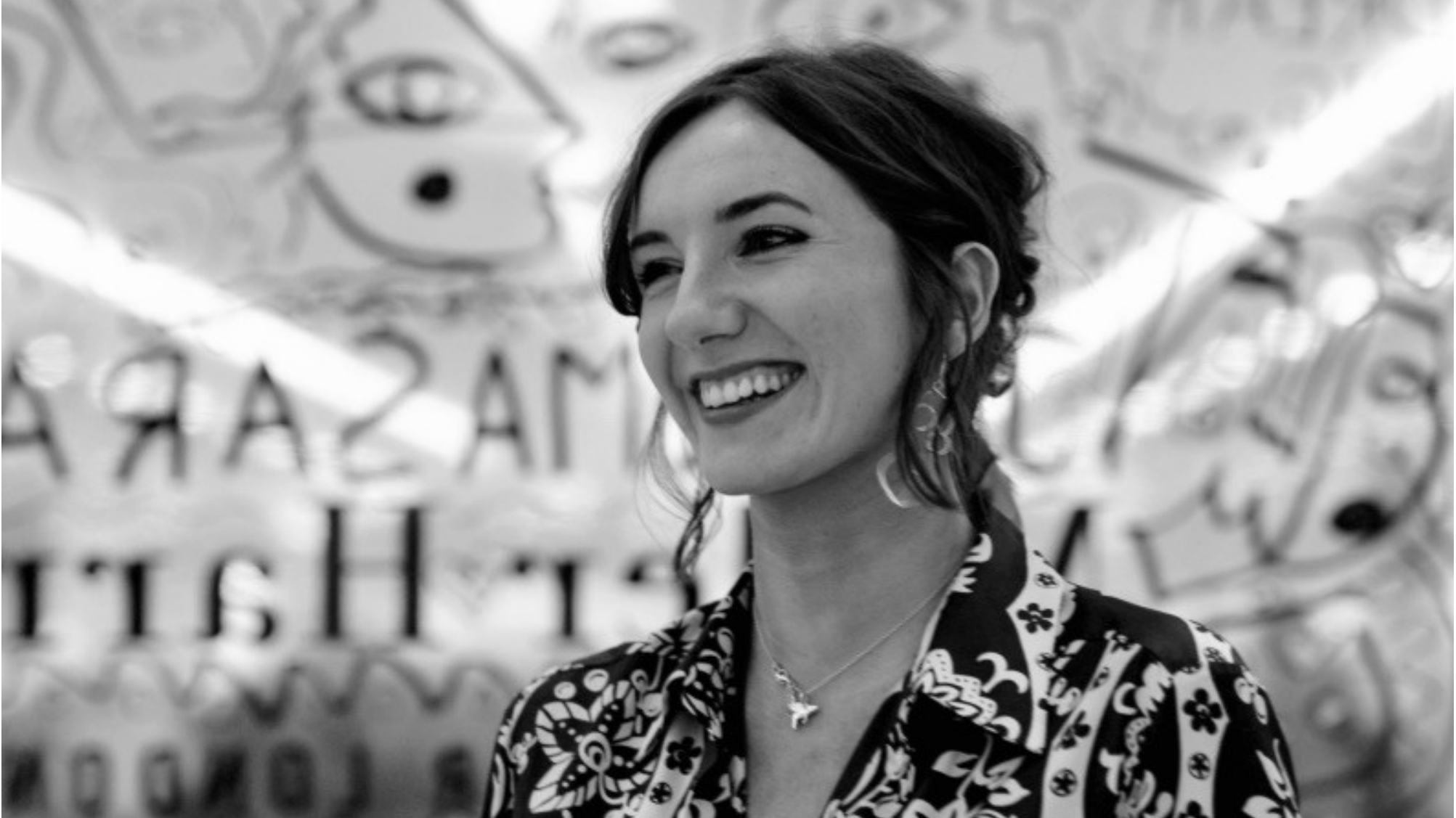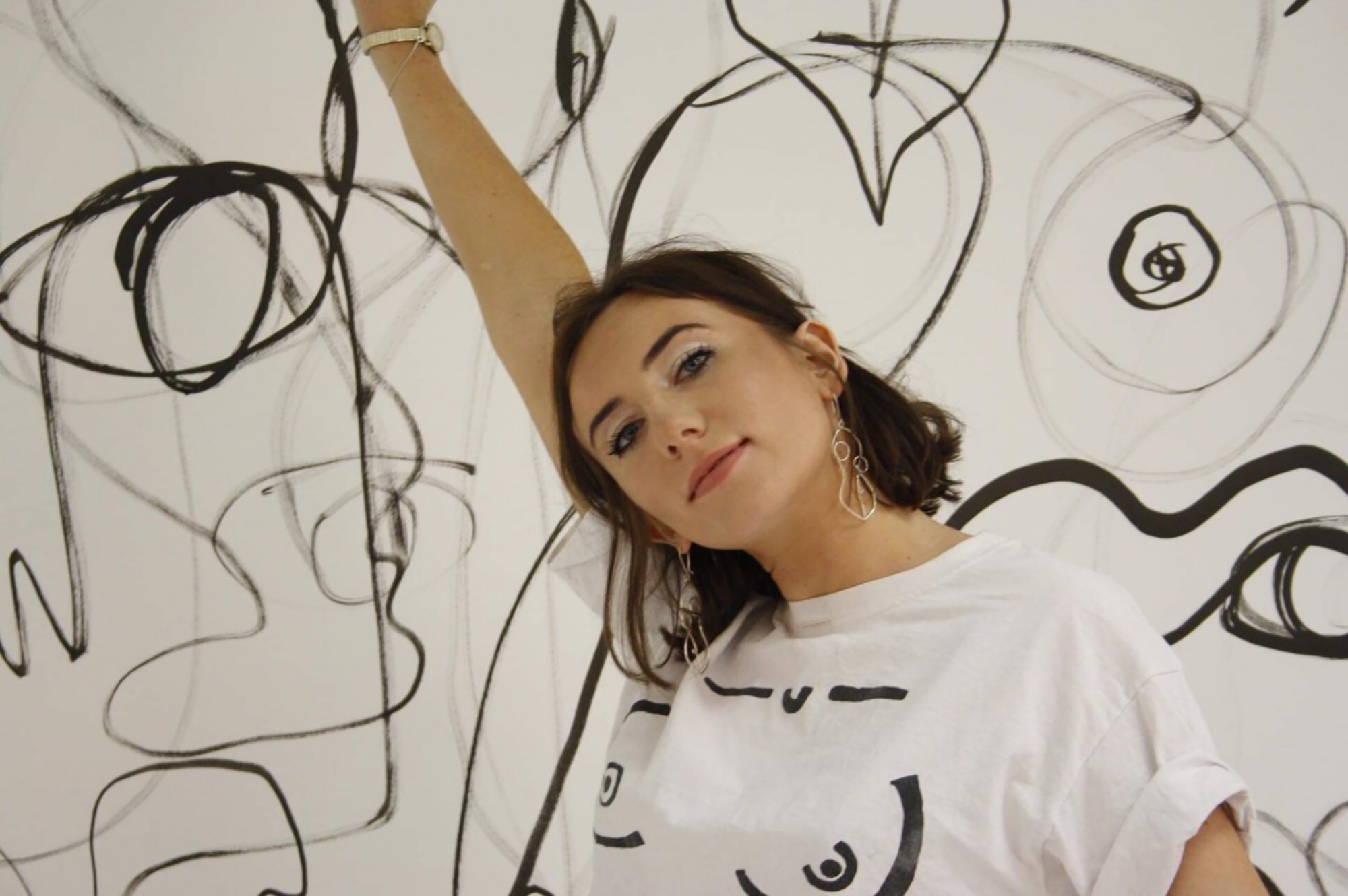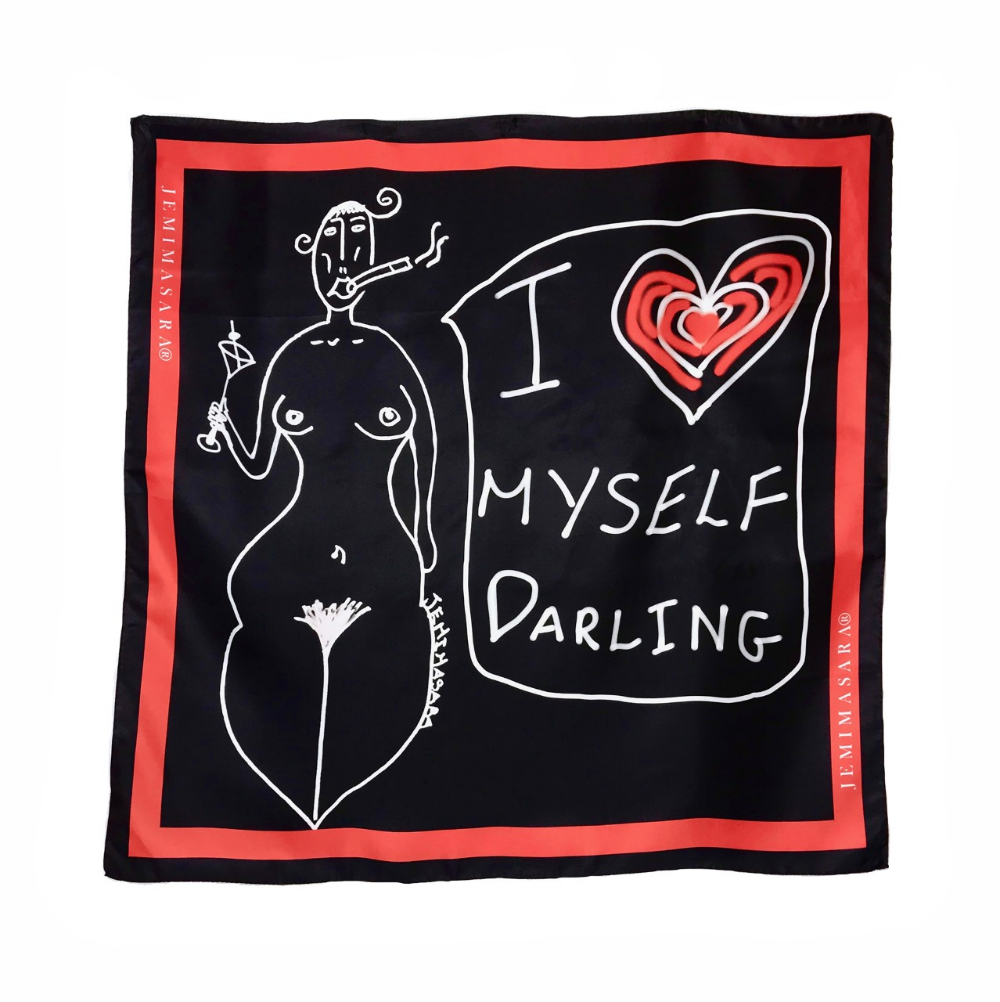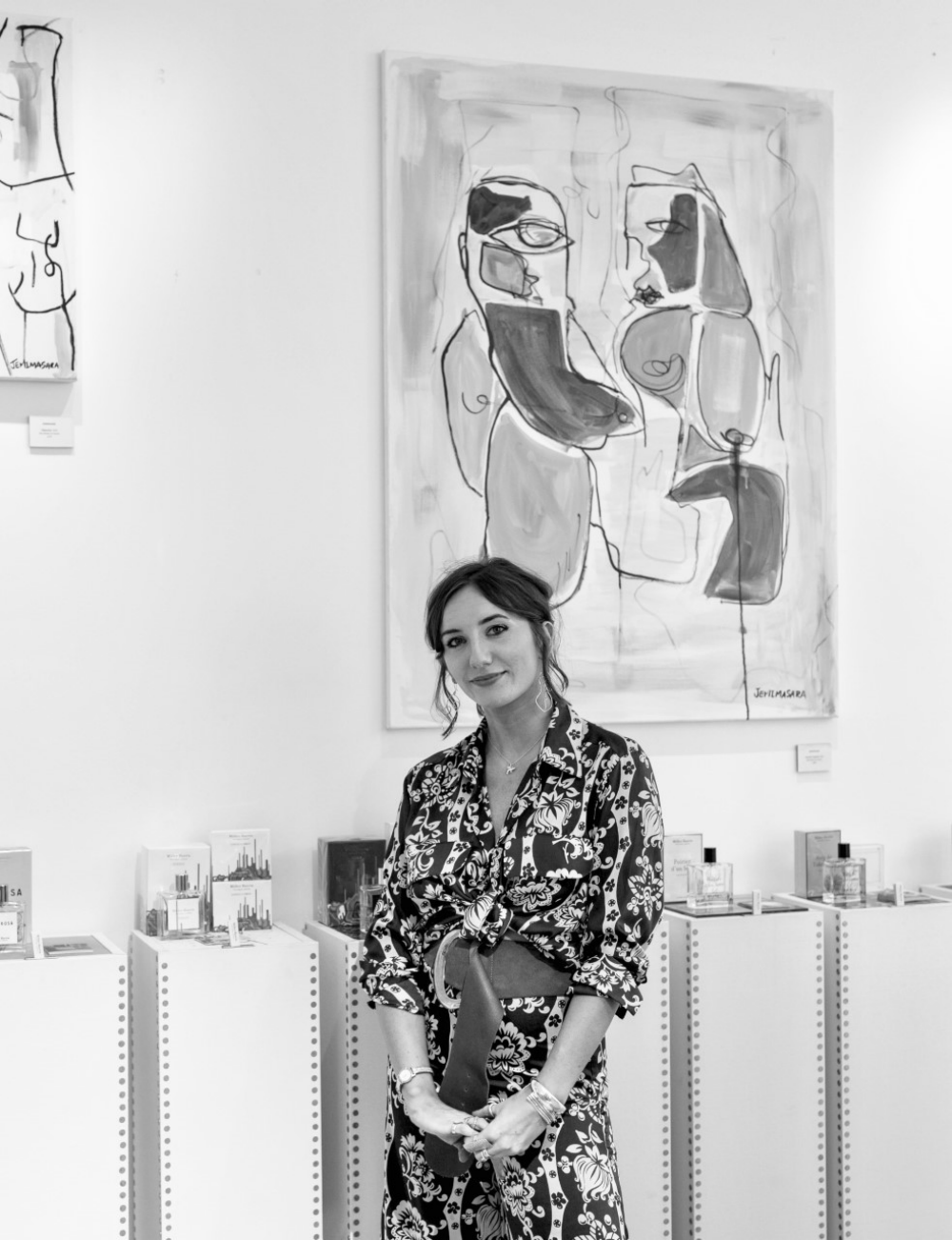'Drawing helped me recover from mental illness and it could help you too'
Jemima Sara tapped into her creative energy three years ago and it saved her life. Now 22, the founder of an eponymous ethical fashion label, shares her hard-won life lessons


Celebrity news, beauty, fashion advice, and fascinating features, delivered straight to your inbox!
You are now subscribed
Your newsletter sign-up was successful
Jemima Sara tapped into her creative energy three years ago and it saved her life. Now 22, the founder of an eponymous ethical fashion label, shares her hard-won life lessons
I am speaking out about my experience with mental illness as I believe talking about our experiences is the only way to break the stigma and support each other. Creativity is something which aids my mental health, however seeking professional help when you are struggling is very important. I advocate therapy and ahead of writing this I spoke to my therapist: 'What should I say? How do I NOT make it a sob story? Do I talk about this, that or the other?'
I came to the conclusion that it is good to write a messy story on mental health because mental health is MESSY. Our lives aren't supposed to make sense so this is just one layer of my ongoing muddled story.
If you’re having a bad day, anxiety-ridden week or you’re struggling through mental illness, you can feel like you have no voice. Drawing is a form of expression and communication where no oral language is required. The good news is, you don’t have to be an artist to benefit from drawing and scribbling. Having started creative business, JEMIMASARA, promoting freedom of expression and mental health, I fell in love with the art of drawing as it enabled me to express my experiences and recover from mental illness.
As a child I let my worries take control and dominate my life. I recall a teacher saying to me 'you're a worrier and that's no good'. Even then I wasn't honest with myself, I was accustomed to anxiety and worry, I never knew any different so why would I change?
It was a couple days before my 19th birthday when I was rushed into hospital needing urgent care. I was suffering from anaphylactic shock from taking two tablets which would 'boost your metabolism' and make you 'skinnier than ever before'. From the age of 14, I'd had an eating disorder so taking the tablets seemed like a no brainer. I mean at least I was going to look 'good', right?
One of the first signs I suffered with mental illness was my eating disorder. It became so managed and negative I ended up in a hospital bed in and trust me, I did not look good.
Celebrity news, beauty, fashion advice, and fascinating features, delivered straight to your inbox!

A few days after leaving the hospital in the United States, I received a call from my mum explaining there had been an earthquake. I'd grown up in a lot of different places thanks to my parents' occupations. Our main base was in Italy, it was more than a home to me; when you move around a lot you try and fixate your childhood to one place, Italy was my place of identity. In August 2016 an earthquake devastated central Italy and our home was badly hit.
Many families were forced out of their homes; sadness, pain and grief swept through communities and lives. When an earthquake hits, it’s not just a one-off thing, the land is precariously unstable. For almost a year the place I knew as home just crumbled and disintegrated, and with it so did many aspects of my life, including a break up with a long-term boyfriend.
I felt alone during this time and even today I struggle with the idea that no one will understand the painful emotions and the fear which play an integral role in my life. The constant anxiety that I might never feel better. The worry, the traumatic visions or that feeling something terrible is going to happen. By now I has moved to London, but I felt invisible, as if I was not ‘real’. Just watching everyone carry on with their lives, what difference would it make if I die? No one would notice and at least the pain would end.
It can be easy to pretend nothing is wrong when you have a mental illness. From my experience it is easier to pretend, than try and explain what is going on inside. I could probably have gone on like this for ever, pretending I was fine on the outside and that I could manage emotions and uncertainty. However, after all those years of suppressing all my feelings, I couldn't carry on. I was so used to pretending and meeting the needs of others, that it became apparent I had no voice, no identity and no belonging.
I was lucky to be on a creative course at university at the time and had started drawing. I would draw naked ladies, EVERYWHERE. Eventually these naked ladies would have martinis and speech bubbles with funny, dark, naughty or positive affirmations. They would say things such as, 'Darling self love is the greatest middle finger of all time' or 'Darling a masterpiece is still a masterpiece when the lights are off and the room is empty. Know your worth'. I would call these unapologetic, self-loving naked ladies my ‘Martini Ladies’. These became my voice. It was quite incredible how out of so much uncertainty, doubt and pain, a quick scribble of a naked lady with a martini glass would help me find the ability to keep going.

Drawing the naked ladies helped me find the courage to seek support. Later that year I enrolled on the university counselling scheme. I am forever grateful for those sessions as I was finally able to express and vocalise my emotions and experiences. Talking changed me for the better and I was able to work through stuff, develop the tools to help me deal with the future and not suppress my emotions or trauma.
Just over a year later, in 2017, I launched creative business JEMIMASARA. My creativity from trauma helped me find my own voice. When you start drawing, you are not only visually expressing yourself but you are using both sides of your brain. This strengthens functionally and improves the connection between the left and right brains. As your brain becomes engaged and is filled with dopamine, we become motivated to share our experiences on the paper. Sometimes it can be hard to find words to express what we feel deep down. When we draw, we are able to reveal multiple emotions, thoughts, and concepts in a piece of art or scribble. There's heaps of evidence that we learn to understand ourselves better and make sense of our feelings through drawing.

We all have our own mental health story to share, and we should never compare our stories. Mental health is messy and different for everyone. It’s up, it’s down, painful, confusing and complex. Creativity saved my life and I have been fortunate enough to meet many others who found strength in creativity too. In our busy lives finding the time to get creative or sit down and draw can seem pointless, but drawing can be a place to clear your thoughts and relax. Combining self-expression with mindfulness can cause you to slow down your breathing and decrease heart rate, blood pressure and muscle tension.
This is one small chapter of my ongoing mental health story and as life continues I learned one very important lesson: just because something works once doesn't mean it will work every time, and that is ok too. Drawing naked ladies helped me find a voice when I never had one as a child and helped me express the pain and loss when I couldn't talk about my friends or family. Getting creative is not a cure for mental illness and it may not help you. Life is a roller coaster.
Soon after launching my business my parents divorced (the next chapter in my messy mental health story). Drawing naked ladies didn't work for me then and for a long time I fell into a familiar feeling of having no voice. When horrible things happen, many of us don’t know how to talk about it or even where to begin. Mental illness is not weakness, I have felt like a burden, invisible, hopeless, and have even been called ‘playing the victim’. I have self harmed and been party to obsessive behaviours but my mental health does not define who I am. I am my own person and so are you. Creativity did help me again and as my work changed, so did I.
If you are reading this and thinking 'maybe a little bit of drawing could help me out of this bad day/ anxiety-ridden week or mental illness', please have a go, I am not saying it is not going to be easy. It is difficult to start and maintain, however try and do a quick scribble. Here is my three-minute scribble tutorial to help you get drawing: Scribble Tutorial
Mental illness affects us all differently and drawing may not work for you. However, there are other forms of creativity such as dancing, writing, singing, music, drama etc. You might just find something that uplifts your mood and enables you to express yourself like you wouldn't have been able to before. Tapping into creative energy does improve your mental and overall health. When you succeed at creating, no matter what it is, your brain is filled with dopamine (that feel-good chemical that helps motivate you).
Since launching JEMIMASARA I've had the opportunity to do countless workshops, talks and even launch my own podcast: Scribbles and Nipples, where I invite my friends and those who inspire me to talk about their experiences. It's where we can celebrate each other, become stronger and strive to recognise and promote important issues affecting us all.
There are hopefully two things you can take away from my life story, firstly try and get creative - even if your mental health is in a good place. Trying something new can empower and motivate us for the better. Secondly, be brave and talk to someone, it's ok to be down, it's ok to be sad, it’s ok to be ok and it’s ok to be good. Talk to each other and seek support if needed.
* If you’re experiencing mental health issues, there are lots of places offering help and support: Samaritans offer emotional support 24-hours-a-day in full confidence. Call Freephone 116 123 Mind offer support and also have information on what do when feeling unsure about the coronavirus. Call 0300 123 3393 or email: info@mind.org.uk SHOUT is the UK’s first 24/7 text service on 85258 Talk to your doctor: If you found creativity has helped you there are a number of creative schemes operating in the UK. Ask your GP practice for info on programmes, which can help with self esteem and confidence, acquisition of new skills and physical health improvements.
Maria Coole is a contributing editor on Marie Claire.
Hello Marie Claire readers – you have reached your daily destination. I really hope you’re enjoying our reads and I'm very interested to know what you shared, liked and didn’t like (gah, it happens) by emailing me at: maria.coole@freelance.ti-media.com
But if you fancy finding out who you’re venting to then let me tell you I’m the one on the team that remembers the Spice Girls the first time round. I confidently predicted they’d be a one-hit wonder in the pages of Bliss magazine where I was deputy editor through the second half of the 90s. Having soundly killed any career ambitions in music journalism I’ve managed to keep myself in glow-boosting moisturisers and theatre tickets with a centuries-spanning career in journalism.
Yes, predating t’internet, when 'I’ll fax you' was grunted down a phone with a cord attached to it; when Glastonbury was still accessible by casually going under or over a flimsy fence; when gatecrashing a Foo Fighters aftershow party was easy-peasy-lemon-squeezy and tapping Dave Grohl on the shoulder was... oh sorry I like to ramble.
Originally born and bred in that there Welsh seaside town kindly given a new lease of life by Gavin & Stacey, I started out as a junior writer for the Girl Guides and eventually earned enough Brownie points to move on and have a blast as deputy editor of Bliss, New Woman and editor of People newspaper magazine. I was on the launch team of Look in 2007 - where I stuck around as deputy editor and acting editor for almost ten years - shaping a magazine and website at the forefront of body positivity, mental wellbeing and empowering features. More recently, I’ve been Closer executive editor, assistant editor at the Financial Times’s How To Spend It (yes thanks, no probs with that life skill) and now I’m making my inner fangirl’s dream come true by working on this agenda-setting brand, the one that inspired me to become a journalist when Marie Claire launched back in 1988.
I’m a theatre addict, lover of Marvel franchises, most hard cheeses, all types of trees, half-price Itsu, cats, Dr Who, cherry tomatoes, Curly-Wurly, cats, blueberries, cats, boiled eggs, cats, maxi dresses, cats, Adidas shelltops, cats and their kittens. I’ve never knowingly operated any household white goods and once served Ripples as a main course. And finally, always remember what the late great Nora Ephron said, ‘Everything is copy.’
